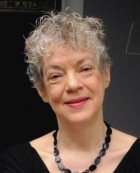Social Judgment: Warmth and Competence are Universal Dimensions
Judging social groups based on warmth and competence
In the warmth- competence space, in most societies studied so far, what appears is an ingroup (a person’s own group, which forms the person’s social identity) and three outgroups (a group with which a person does not identify). The ingroup is usually rated as both warm and competent, but the outgroups are rated as lacking either warmth or competence or both. For example, in the USA, at the present time, middle-class people, Christian people, heterosexual people, and US citizens all are societalingroups. People rate these groups as high on both warmth and competence, and they express pride and admiration for them (Cuddy et al., 2007; Fiske, Xu, Cuddy, & Glick, 1999; Fiske, Cuddy, Glick, & Xu 2002).
On the other hand, poor white people, poor black people, welfare recipients, homeless people, drug addicts, and undocumented migrants are societal outgroups (Cuddy, Fiske, & Glick, in press; Fiske et al. 1999; Fiske et al. 2002; Lee & Fiske, 2006). These groups reportedly elicit contempt and disgust more than all other groups. These extreme outgroups are the lowest of the low, in people’s minds, and seen as less human than other groups, according to brain scans of people viewing photographs of people from these groups (Harris & Fiske, 2006).
Most of the time, however, people are more moderate and forgiving toward outgroups. People tend to perceive members of mostoutgroups as high on one dimension (e.g.,
warmth) and low on another (e.g.,
competence). For example, in the US, people who are older, physically-disabled or mentally-disabled are viewed as warm but incompetent. These groups elicit pity and sympathy (Cuddy, Fiske, Kwan, Glick, Demoulin, et al., in press; Fiske et al. 1999, 2002; Fiske & Cuddy, 2006). Other groups are viewed as competent but cold and untrustworthy. In the US, these currently include rich people, Asian people, Jewish people, female professionals, and minority professionals. These groups elicit envy and jealousy more than other groups. This pattern appears in most countries, and generalizes to outgroups’ –subgroups, such as different kinds of women (warm-incompetent homemakers but cold-competent feminists) and different kinds of gay men (warm-incompetent ‘clowns’ but cold-competent professionals).


